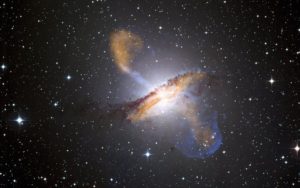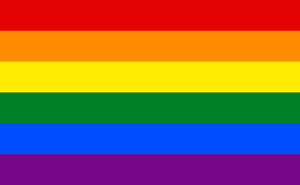 Today’s post will be shorter than usual because I don’t believe in stretching my ideas out to fit a predetermined word count. If I can say it in 700 words, I’m not going to give you a few thousand of them just to fit the pattern of many of my previous posts here. (I’m planning to talk more about why it’s so important to avoid padding out blog posts next week, so stay tuned!)
Today’s post will be shorter than usual because I don’t believe in stretching my ideas out to fit a predetermined word count. If I can say it in 700 words, I’m not going to give you a few thousand of them just to fit the pattern of many of my previous posts here. (I’m planning to talk more about why it’s so important to avoid padding out blog posts next week, so stay tuned!)
A few days ago, I started wondering how Pride Month would be handled in the Star Trek Universe. Those of you who follow me on Twitter might remember my tweets about it.
I wonder if any #StarTrek ships will ever have a #PRIDE parade? Galaxy class starships had 1,000 people onboard, IIRC. (1/2)
— Lydia Schoch (@TorontoLydia) June 22, 2017
If about 4% of people are LGBT, that would mean there would be about 40 of us on those #StarTrek ships, plus all the allies. #PRIDE 🏳️🌈
— Lydia Schoch (@TorontoLydia) June 22, 2017
The topic remained so interesting to me I decided to write about it some more today. There were some episodes of older Star Trek shows that briefly touched on LGBT issues, but the UF Starfleet calendar surprisingly doesn’t show anything LGBT-related for any month out of the year.
Star Trek’s Take on LGBT Issues
When I watch those old episodes today, some of their conflicts feel horribly outdated and out-of-sync with Starfleet’s culture in general because of how much attention was paid to worrying about something that shouldn’t be a problem at all in that universe.
Yes, I know that these episodes were written in the 1980s and 1990s when LGBT people experienced more overt discrimination than we do today. My point about them sticking out like a sore thumb still stands, though. They didn’t fit in with the inclusive tone of the show when it came to gender or race.
Starfleet isn’t an easy place to thrive. Their standards are strict and set quite high, but those expectations have absolutely nothing to do with the species, age, gender, sexual orientation, or race of anyone who works for them. The very idea of judging someone based on that stuff goes against everything Starfleet stands for.
So I have a tendency to fanwank certain scenes as completely out of the norm for the characters in this universe. Believing that gender identity and sexual orientation are still considered to be controversial in a society where all of the other forms of prejudice aren’t entertained doesn’t make sense.
It would be like writing a story set in 2017 about someone who is deeply prejudiced against Irish people and who meets very little opposition to their bigotry no matter where they go in our world or who they meet. While such a person may very well exist and privately have those thoughts, the kinds of things that might have been okay to say against the Irish in the 1800s would be more than enough to have permanent, negative consequences for the person who voiced them today.
Let Alien Worlds and Cultures Be True to Themselves
Obviously, the experiences that any writer has in our world is going to influence how she or he writes about the imaginary places they create, but there is such a thing as allowing one’s own prejudices and assumptions to have too much of an impact on how those fictional places are described.
This is much easier to do than to say, of course, but that doesn’t make it any less important. 
One of the things I love the most about the science fiction genre as whole is how unafraid it is to push back against cultural norms and ask questions about why certain things happen.
This is a genre that isn’t afraid to ask questions or imagine worlds much more just than our own. With this in mind, I don’t think any of the Starfleet vessels would have any problem at all with Pride parades, parties, or other events. If LGBT officers or residents wanted to celebrate, they’d be totally welcomed to.
Maybe the world has changed enough that we’ll see regular LGBT representation on Star Trek: Discovery this autumn. My fingers are crossed that it will be.
